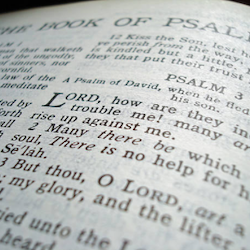It is an interesting irony that, at a time when so many Christians have abandoned the King James Bible, a prominent atheist should come forth to praise it.
In celebration of the four hundredth anniversary of the King James Bible in 2011, the famed unbeliever Christopher Hitchens paid it gushing homage in Vanity Fair magazine, where he argued that the dignity of its prose, the beauty of its expression, and the appropriateness of its linguistic form to its exalted subject matter make it one of the greatest works of the English language—a “repository and edifice of language which towers above its successors”:
For generations, it provided a common stock of references and allusions, rivaled only by Shakespeare in this respect. It resounded in the minds and memories of literate people, as well as of those who acquired it only by listening. From the stricken beach of Dunkirk in 1940, faced with a devil’s choice between annihilation and surrender, a British officer sent a cable back home. It contained the three words “but if not …” All of those who received it were at once aware of what it signified. In the Book of Daniel, the Babylonian tyrant Nebuchadnezzar tells the three Jewish heretics Shadrach, Meshach, and Abednego that if they refuse to bow to his sacred idol they will be flung into a “burning fiery furnace.” They made him an answer: “If it be so, our god whom we serve is able to deliver us from the burning fiery furnace, and he will deliver us out of thy hand, O King. But if not, be it known unto thee, O King, that we will not serve thy gods, nor worship the golden image which thou hast set up.”

